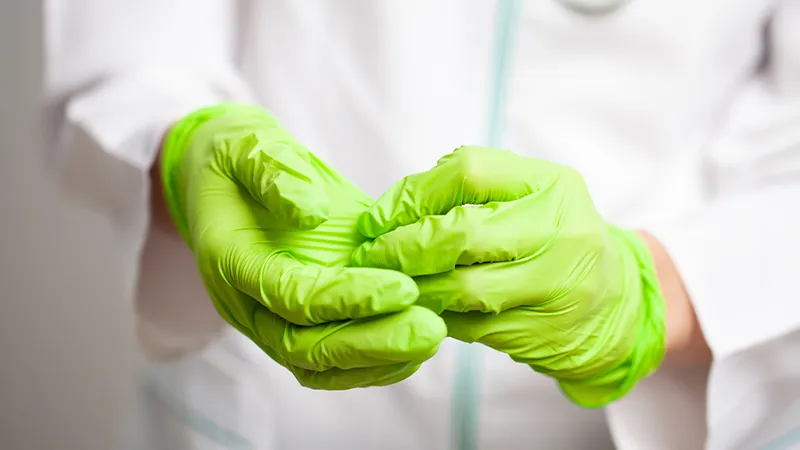Health and hygiene are paramount, and the importance of personal protective equipment cannot be overstated. Among these essential tools are nitrile examination gloves. These gloves have become a vital part of our daily lives, especially in healthcare settings and various industries where infection control is crucial. This article will explore the significance of nitrile gloves as a shield against infections and the different sectors where they play a pivotal role.
Healthcare Heroes: Gloves in the Medical Field
In the healthcare industry, nitrile examination gloves are indispensable. They are the first line of defence for healthcare professionals against the transmission of infections. Whether it’s a routine check-up, a surgical procedure, or handling potentially infectious materials, these gloves deliver a protective fence that lowers the risk of cross-contamination. They are known for their strength and puncture resistance, ensuring that healthcare workers can perform their duties with confidence and safety.
Infection Control in Laboratories
Laboratories are another critical domain where nitrile examination gloves are a must-have. Scientists and researchers handling various specimens and chemicals rely on these gloves to protect themselves from potential hazards. Nitrile gloves are highly resistant to multiple chemicals, including acids and solvents, making them suitable for laboratory work. Their non-reactive nature ensures they do not interfere with experimental results, making them an essential tool in research and development.
The Food Industry: Safeguarding Both Workers and Consumers
Ensuring food safety is imperative within the food industry. Nitrile examination gloves ensure food is prepared, handled, and served with the utmost care and hygiene. Chefs, food handlers, and restaurant staff wear these gloves to prevent contamination, especially when dealing with raw ingredients. They offer superior grip and tactile sensitivity, allowing for precise food handling while minimising the risk of transmitting harmful bacteria or pathogens to consumers.
Manufacturing and Industrial Sectors
Employees often work with various materials and substances in manufacturing and industrial settings, some of which may be hazardous. Nitrile examination gloves protect against chemicals, oils, and other potentially harmful substances. They are crucial in preventing skin contact with these substances and mitigating the risk of skin irritation, allergic reactions, or more intense health issues. These gloves are a safety necessity in the automotive, construction, or chemical industries.
Dental Care: Ensuring Patient and Provider Safety
Dentists and dental hygienists rely on nitrile examination gloves to provide both themselves and their patients with a safe and sanitary environment. These gloves serve as a protective barrier against the transmission of infections during dental procedures, including cleanings, fillings, and extractions. Their tactile sensitivity allows for precision work, while their durable nature ensures they can withstand the rigours of dental procedures.
Pharmaceuticals: Handling Medications with Care
In the pharmaceutical industry, where the handling of medications and sterile compounds is a daily routine, nitrile examination gloves are a crucial component of infection control. They provide an additional layer of protection against contamination, ensuring that the final products are devoid of potential contaminants. This assurance brings peace of mind to both manufacturers and consumers.
Beyond Industries: Everyday Use and Safety
While nitrile gloves are a cornerstone of professional settings, they have also found their way into everyday life. During the COVID-19 pandemic, they became a symbol of personal protection, and their use extended to grocery shopping, public transportation, and other daily activities. This demonstrates their versatility and importance in safeguarding individuals against infections.
Conclusion
Nitrile examination gloves have become integral to infection control in various sectors, from healthcare to food service and laboratories to manufacturing. They are not merely protective gear; they are the frontline defenders against the spread of infections, guaranteeing a safer and healthier atmosphere for all. So, whether you’re a healthcare professional, a scientist, a chef, or an everyday individual, these gloves are essential to combat infections and promote overall well-being.





